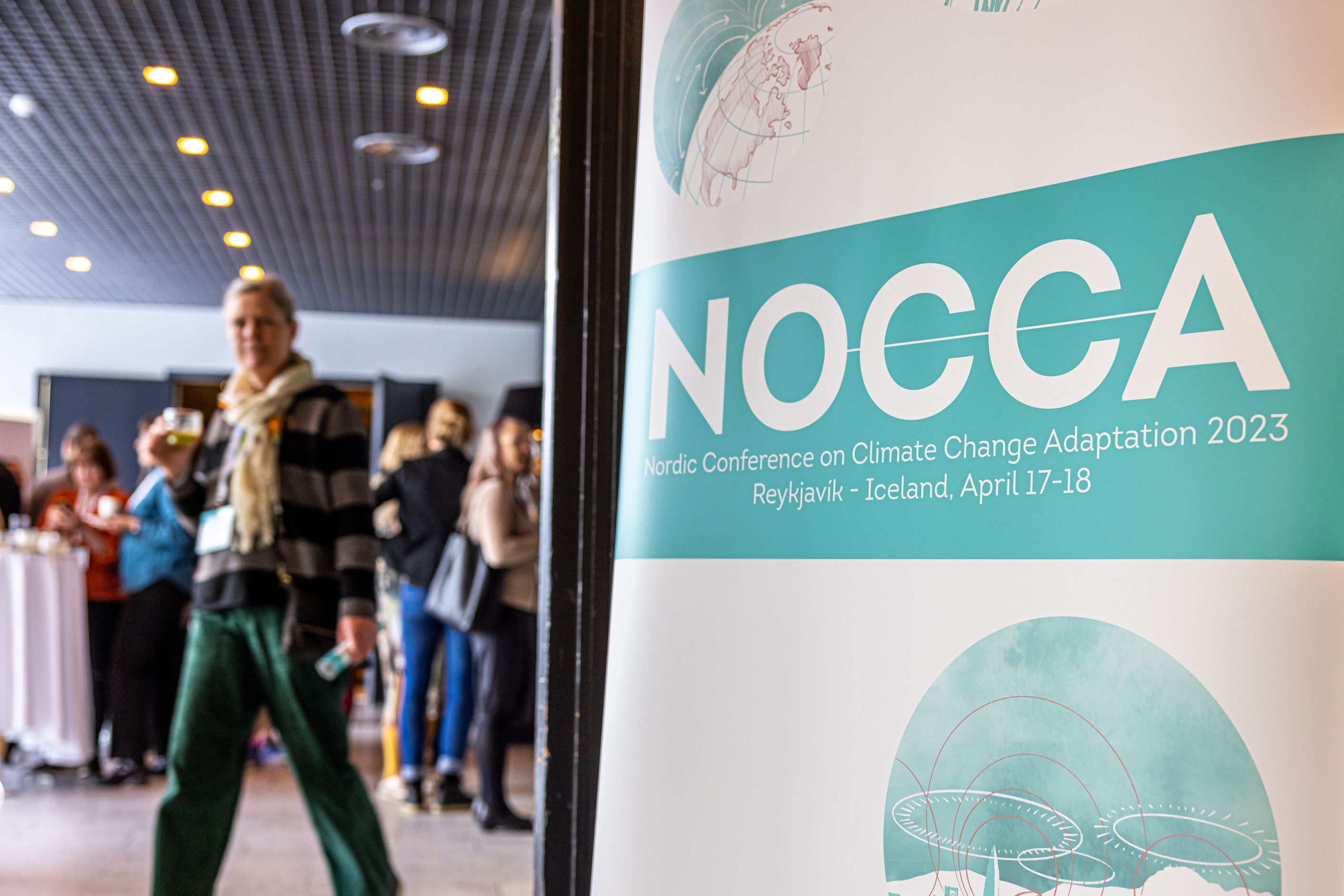NOCCA 2023
The 6th Nordic Conference on Climate Change Adaptation, NOCCA 2023, took place in Reykjavík, Iceland on April 17-18, 2023, which coincides with the year that Iceland holds the Presidency at the Nordic Council of Ministers. The participants of the conference were municipal experts and civil servants, researchers, policy- and decision-makers, as well as representatives from the private sector and NGOs. About 180 attended in situ, mostly from the Nordic countries, while a little over 700 followed the event online.
The focus of NOCCA 2023 was on how to mainstream adaptation to climate change at the sub-national level, with a special focus on the local authorities in Nordic countries. Four thematic areas were selected in consultation with the program committee: sea level rise, transboundary climate risks (TCR), nature-based solutions (NBS), and local master planning. The conference explored the current state of adaptation as well as actions implemented in different Nordic countries and the challenges, opportunities, and learnings from the implementation process. The role of different actors, such as national, regional, and local governments were discussed, and how dynamic engagement with the community is paramount to successful implementation. Finally, the role of the Nordic Council of Ministers in accelerating adaptation measures within the Nordic region and beyond was discussed.
The results from the conference have been synthesized into a policy brief that captures the thrust of the discussion of the conference and aims to inform and accelerate mainstreaming of adaptation at the municipal level in the Nordic countries.

Assembled by the Climate Services and Adaptation Center at the Icelandic Met Office with support from Alta consulting, the Icelandic Ministry of Environment, Energy, and Climate, the Nordic Adaptation network, and NOCCA workshop coordinators.
Key Messages from NOCCA 2023
- Collaboration between local and national governments in adapting to climate change is important. Municipalities are tasked with implementing adaptation responses, while the national government provides support through finance and legislation. There is a need for clearly assigned responsibilities in addressing climate change.
- National governments have the responsibility to ensure that decisions on adaptation responses are underpinned by robust data and research. National governments should allocate sufficient resources for research and monitoring of climate risk. Additionally, they should consider the diverse vulnerabilities experienced by different localities and economic sectors.
- There is a need to bridge the gap between science and policymaking through continuous efforts, yielding better solutions.
- To facilitate the dissemination of scientific data to decision-makers and stakeholders, national platforms such as web portals are needed.
- Updating planning laws and regulations is necessary, expanding the scope of planning considerations beyond land-use planning. A more comprehensive master planning approach is advocated, which delves deeper into climate change adaptation and considers the social setting and service delivery.
- Engaging the local community in the decision-making process has multiple benefits. It enhances understanding of risk and available responses, facilitates the selection of appropriate solutions, and builds consensus around expensive and disruptive yet necessary measures.
- In a hyperconnected world, assessing and addressing transboundary climate risks is important. Local governments need to collaborate with national governments and private businesses to tackle such risks.
- The Nordic countries have developed excellent tools for adaptation and are willing to share them. The countries can accelerate climate adaptation measures by establishing an information-sharing platform, where key learnings, case studies, guidelines, and tools on adaptation measures can be shared across the region.
- Building on a common ground there is an opportunity for the Nordic countries to work together and enhance their global presence in implementing effective adaptation measures for regions that need assistance.